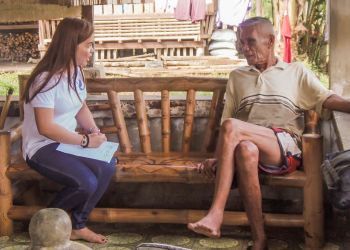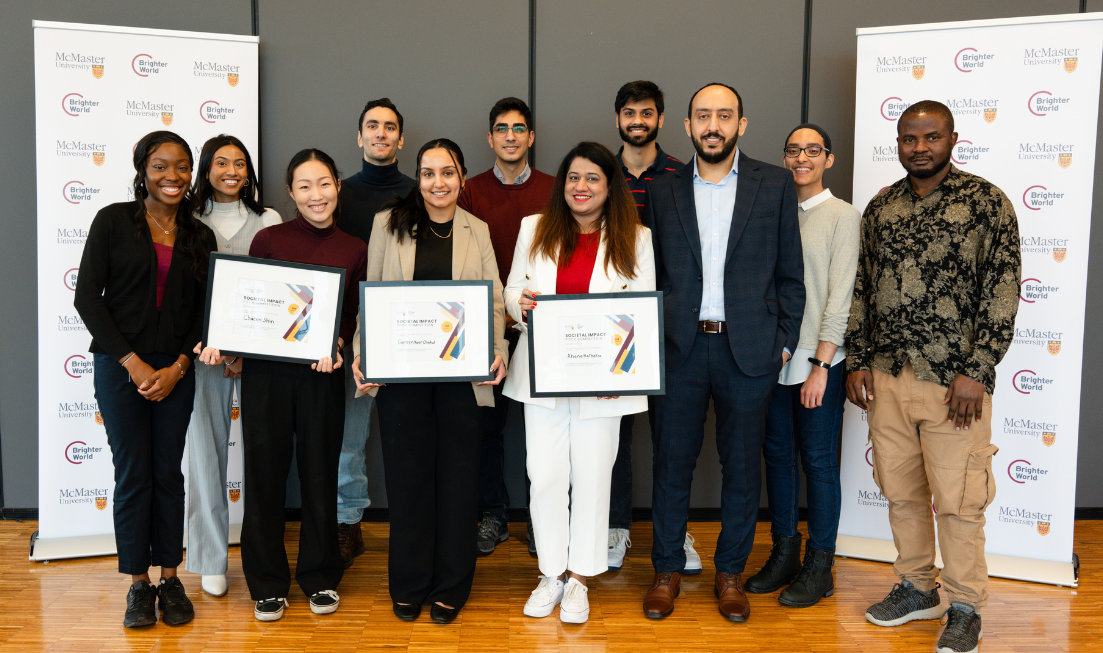McMaster Family Medicine Researchers Aim to Decrease Diabetes in the Philippines

Lea Montigo, research assistant from Ateneo de Zamboanga University, working in the field.
McMaster University’s Department of Family Medicine researchers, and others from across the Faculty of Health Sciences, are working to decrease diabetes in low-and-middle-income countries (LMICs).
The Community Health Assessment Program in the Philippines (CHAP-P), led by Dr. Lisa Dolovich (McMaster University, Department of Family Medicine) and Dr. Fortunato Cristobal (Ateneo de Zamboanga University), is adapting and testing a community-based health intervention model originally developed in Canada as the Cardiovascular Health Awareness Program (CHAP).
The collaborative team involves McMaster researchers Dr. Lisa Dolovich, Dr. Ric Angeles, Dr. Gina Agarwal, Dr. Karl Stobbe, Dr. Dale Guenter, Dr. Janusz Kaczorowski, as well as Dr. Lehana Thabane and Dr. Daria O’Reilly from the FHS, and other universities in Canada and the Philippines.
Since 2002, the CHAP model has been refined through numerous pilot projects, scientific trials, and community-wide demonstrations, receiving accolades for its low-cost and effective use of volunteers.These strengths, combined with its innovative simplicity, make it a potential solution for addressing other chronic diseases in LMICs.
“Training and capacity building is vital to our work — both here and abroad,” notes Dolovich. “In addition to our graduate trainees, we have been pleased to have 3rd year Global Health undergraduate students, Su Rao and Angela Ma, intern and volunteer time with us since last April. Overall, it’s been thrilling to both lead and learn as we operationalize the project in a challenging area in the Philippines.”
CHAP-P began in 2015 as an inventive five-year research program jointly funded by the International Development Research Centre, and the Canadian Institutes of Health Research. The project builds on existing relationships between faculty at the McMaster University Department of Family Medicine and their colleagues at the Ateneo de Zamboanga University’s School of Medicine (ADZU SOM) — scholars and health professionals who have been collaborating on academic pursuits since 2002.
“The Department of Family Medicine has an active global health presence, with projects and partnerships in Brazil, Indonesia, Nepal, Uganda and Tanzania to name a few,” says Dr. David Price, professor and Chair of the Department of Family Medicine. “The CHAP-Philippines project is one more example of our department collaborating with other countries to improve the health of their local citizens while better understanding how to care for our own citizens here in Canada,” he notes.
The project employs a mixed methods design to test the CHAP model’s effectiveness in decreasing the number of people with a high risk of diabetes. The research involves adapting the existing model to work in communities in the Philippines, followed by a pilot phase to pre-test the model and validate diabetes risk questionnaires that will be used in the final phase: a randomised controlled trial.
Research findings will help inform government officials and health workers about how the model can be implemented over the long term and in other communities. After CHAP-P, the model may continue to grow through future work in LMICs such as Nepal or Thailand.
“This project is a prime example of the ways in which McMaster continues to demonstrate leadership and a strong commitment to collaboration and innovation in addressing global health challenges,” says Andrea Baumann, director of McMaster’s MSc Global Health program.
For more information about the CHAP-P study, visit the Global Alliance for Chronic Diseases or contact Susan Dimitry, Research Coordinator at dimitrys@mcmaster.ca
Global Health News
Related News
News Listing

Daily News ➚
McMaster earns top spot for graduate student research intensity in annual rankings
Global Health News
December 9, 2024

December 4, 2024

McMaster University (Global Health) and the University of Global Health Equity (UGHE), Rwanda Sign a Memorandum of Understanding (MOU)
Global Health News
November 28, 2024
